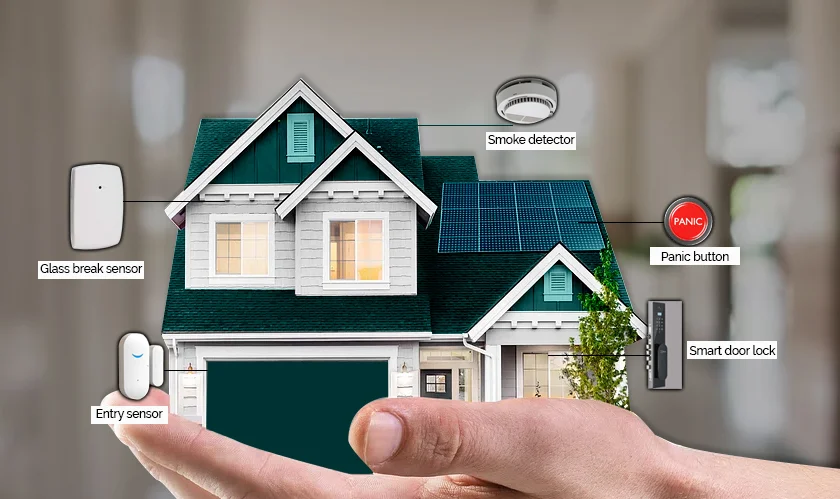Home security has become integral to safeguarding our personal spaces and protecting loved ones. As crime rates fluctuate, creating a secure environment remains a priority for many homeowners. Effective home security solutions protect property and offer invaluable peace of mind. Whether upgrading your systems or building a new setup from scratch, understanding when and how to engage a locksmith is crucial. This professional guidance can be pivotal, particularly during emergencies or technological installations, ensuring safety and efficacy.
Understanding Different Types of Locks
Choosing the right system with the help of a locksmith can significantly impact your home’s security level. Deadbolts stand out for their simplicity and strength, commonly used across residential settings owing to their resistance against forced entry. In contrast, smart locks offer convenience and security by enabling remote access and monitoring through mobile devices. Assigning temporary access codes or unlocking doors via smartphones has revolutionized property management, particularly in vacation rentals and remote properties.
The Function of Technology in Contemporary Security Systems
The advancement of technology has brought about a new age of integrated, advanced, and easy-to-use security systems. These systems incorporate cameras, alarms, and intelligent sensors, creating a robust security network. Video doorbells, streaming live footage to smartphones, and motion detectors that trigger lights or alarms significantly deter criminal activity. The synergy of these devices enhances environmental awareness, enabling real-time responses to security breaches.
DIY Home Security Tips
Taking security into your own hands can be both empowering and cost-effective. Start by identifying and addressing weak points in and around your home—common entry points like windows and doors often require additional fortification. Security cameras, even fake ones, can be visual deterrents to potential intruders. Planting thorny shrubs under windows and installing motion-sensor lights can deter unwanted attention at night. DIY systems provide versatility and usually incorporate software that lets you monitor your property using a smartphone. By assessing your home’s vulnerabilities, you can implement personalized solutions that balance budget constraints with security needs.
When to Call a Professional Locksmith
Despite being hands-on with DIY security improvements, professional locksmiths should handle specific tasks for precision and longevity. Situations requiring expert intervention include lost keys, accidental lockouts, or upgrading to high-security locks. Locksmiths provide installation services and perform essential tasks like rekeying locks to match a new key, rendering all previous keys obsolete and enhancing security without total replacements. Their expertise is particularly beneficial when integrating locks within more advanced security systems, ensuring seamless compatibility and operation. Knowing when to rely on professional services is crucial for a secure and functional setup.
Essential Security Devices for Every Home
Comprehensive home security extends beyond burglar alarms and locks to include devices addressing safety from non-human threats. Essential additions to every home include smoke detectors and carbon monoxide alarms, which alert occupants to potentially lethal hazards. Combining these with smart cameras and doorbells can enhance security and functionality, offering visual and communicative interfaces with the outside world even when you’re away. Their integration into home automation systems provides control over locking and monitoring remotely, making them indispensable in modern households.
Maintaining Your Home Security System
Ensuring the reliability of your security system requires regular maintenance and updates. Testing alarm systems monthly, replacing batteries annually, and updating the software are practices that keep devices functioning optimally. When components are outdated, or systems encounter connectivity issues, addressing these problems immediately prevents vulnerabilities that can be exploited. This ongoing management is vital for maintaining home security and ensuring systems and authorities’ rapid and effective response in emergencies. A well-maintained system is a cornerstone of a secure home.
Future Trends in Home Security
Home security’s future is promising and dynamic, driven by innovations that promise to transform how we secure our living spaces. Biometric authentication systems, including fingerprint and facial recognition technology, are becoming more prevalent, offering personalized security without the hassle of keys or passwords. AI-enhanced surveillance cameras have the potential to distinguish between routine movements and suspicious activities, sending alerts only when necessary to reduce false alarms. These technologies aim to improve security and create systems that can work autonomously, learning from patterns and adapting to homeowner preferences and routines. Keeping abreast of these trends will ensure your home’s security solutions remain relevant and cutting-edge.




